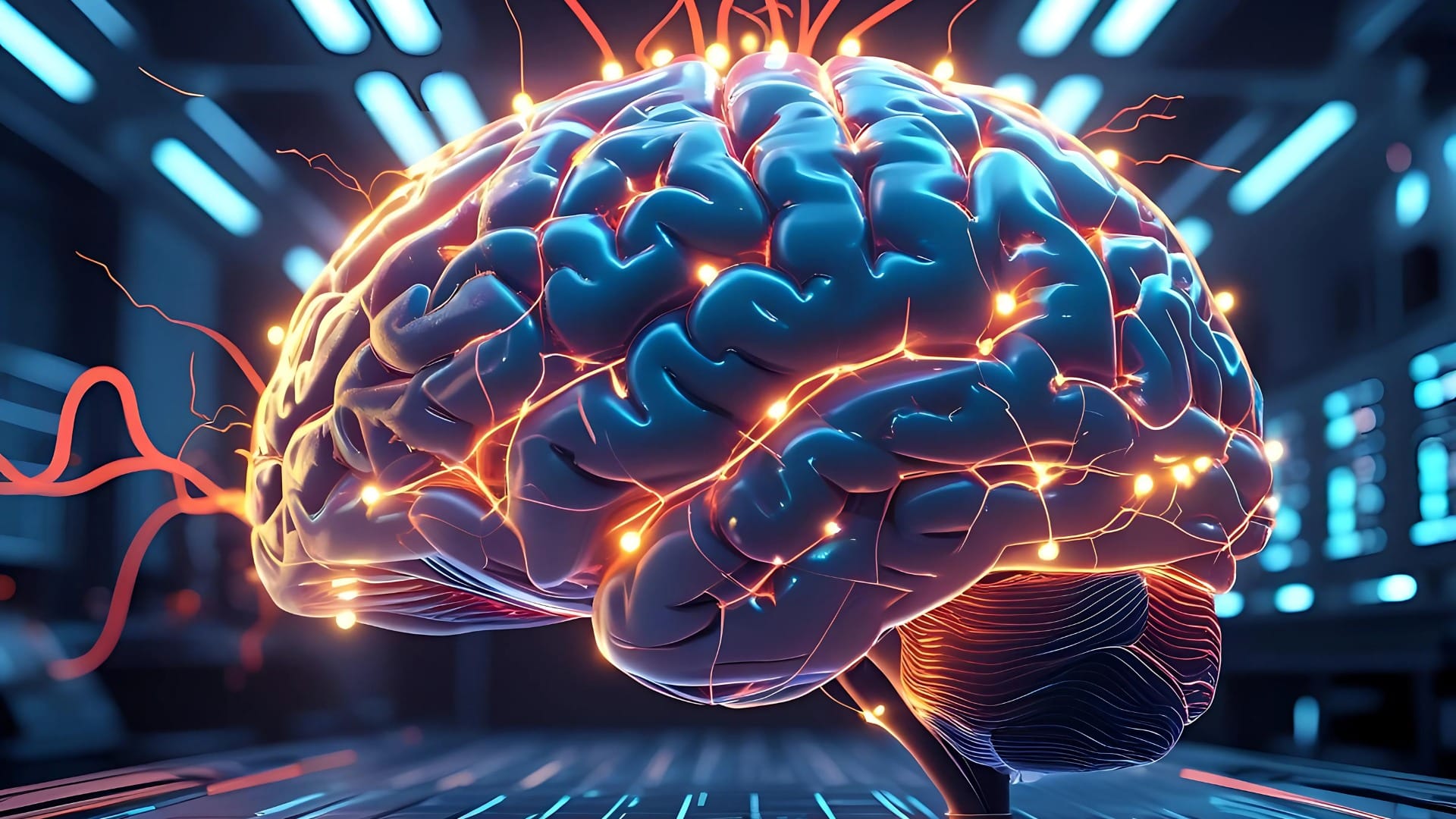Artificial Intelligence: The Complete Guide
As a researcher in this field, I have witnessed the impact of AI on society and the potential it holds for the future.

Artificial Intelligence
Overview
Definition of Artificial Intelligence
Artificial Intelligence, or AI, is a field of computer science that aims to create machines capable of mimicking human intelligence. It encompasses a wide range of techniques and approaches, including machine learning, natural language processing, and computer vision. AI systems can analyze large amounts of data, identify patterns, and make predictions or decisions based on that data. The development of AI has led to significant advancements in various industries, including healthcare, finance, and manufacturing.
As a researcher in this field, I have witnessed the impact of AI on society and the potential it holds for the future.
History of Artificial Intelligence
As I delve into the history of Artificial Intelligence, I am struck by the remarkable journey of this field. From its early conceptualization to the present day, AI has evolved at a rapid pace, transcending the boundaries of human intellect. The pioneers of AI laid the foundation for what would become a revolutionary force in technology. However, amidst the awe-inspiring progress, the specter of mad science loomed over the horizon, casting doubts on the ethical implications of AI's potential. It is essential to acknowledge the delicate balance between innovation and ethical responsibility, ensuring that AI remains a force for good in the world.
Applications of Artificial Intelligence
As an expert in the field of artificial intelligence, I have witnessed the profound impact of AI in various domains. One of the key areas where AI has made significant strides is in programming tools. These innovative tools leverage machine learning algorithms to automate code generation, optimize performance, and enhance developer productivity. The use of AI-powered programming tools has revolutionized software development by enabling faster prototyping, efficient debugging, and seamless integration of complex functionalities. Moreover, these tools have facilitated the creation of intelligent applications that can adapt and evolve based on real-time data, opening up new frontiers in software engineering and computer science.
Ethical Considerations

Privacy and Data Security
As I consider the Privacy and Data Security aspect of artificial intelligence, it's essential to recognize the potential risks and vulnerabilities associated with the collection and utilization of personal data. The responsible handling of sensitive information is crucial in ensuring the trust and confidence of individuals and organizations. Future of banking is a prime example of an industry that relies heavily on data security and privacy to maintain its integrity and safeguard the financial well-being of its customers. Implementing robust security measures and ethical data practices is imperative to address these concerns and uphold the ethical standards of artificial intelligence.
Bias and Fairness
As I consider the Bias and Fairness in artificial intelligence, it is crucial to address the ethical implications of these issues. One area of concern is biomedical ethics, which raises questions about the use of AI in healthcare and medical decision-making. The intersection of AI and biomedical ethics necessitates a careful examination of the impact on patient care, privacy, and the ethical responsibilities of healthcare professionals. Addressing these concerns requires a multidisciplinary approach that considers the perspectives of medical professionals, ethicists, and technologists. By fostering collaboration and dialogue, we can strive to ensure that AI technologies uphold the principles of biomedical ethics and contribute to the well-being of individuals and society.
Accountability and Transparency
As I reflect on the ethical considerations of artificial intelligence, the concepts of accountability and transparency take center stage. The responsibility of ensuring that AI systems are used ethically and responsibly is a critical aspect of their development and deployment. This involves establishing clear guidelines for the collection and use of data, as well as ensuring that decisions made by AI systems are transparent and understandable. The potential impact of AI on various aspects of society, including privacy, fairness, and decision-making, calls for a deep sense of responsibility and vigilance. In the context of AI's growing influence, the need for accountability and transparency becomes increasingly evident, shaping the future of this technology and its implications for humanity.
Challenges and Limitations

Technical Challenges
As I delve into the realm of artificial intelligence, the technical challenges present a formidable landscape that demands careful navigation. The complexity of algorithm design, model optimization, and computational resources poses intricate hurdles that require innovative solutions. Moreover, the ethical and social implications of AI technologies add another layer of complexity, calling for a balanced approach to development and deployment. These challenges illuminate the cosmos of AI, revealing the vast expanse of possibilities and the responsibility that comes with it.
Ethical and Social Challenges
As I reflect on the ethical and social challenges posed by artificial intelligence, it becomes clear that the invention of AI has brought about a fundamental shift in the way we approach technology. The impact of AI on society is profound, raising critical questions about privacy, bias, and accountability. In particular, the ethical implications of AI invention are far-reaching, demanding careful consideration and proactive measures to ensure that AI technologies are developed and deployed responsibly. The intersection of AI and social dynamics presents complex challenges that require thoughtful examination and collaborative solutions. It is essential to navigate this landscape with a deep understanding of the societal implications of AI invention.
Economic Impact
As an AI researcher, I find the economic impact of artificial intelligence to be a crucial aspect of its development. The adoption of AI technologies has led to significant changes in various industries, resulting in improved efficiency, productivity, and cost savings. However, it is important to consider the potential displacement of jobs and the need for retraining the workforce to adapt to the changing landscape. Additionally, the emergence of thought-to-text machines has the potential to revolutionize communication and information processing, opening up new opportunities for innovation and collaboration. These advancements bring both challenges and opportunities, and it is essential to carefully navigate the economic implications of AI to ensure sustainable and inclusive growth.
Future of Artificial Intelligence

Advancements in AI Research
As we delve deeper into the advancements in AI research, it becomes evident that the potential of Artificial Intelligence is boundless. The rapid progress in AI has paved the way for groundbreaking innovations, from sophisticated natural language processing to intricate problem-solving capabilities. One notable development is the emergence of the robotic home helper, which has revolutionized the way we approach household tasks. This innovative technology has the potential to enhance the quality of life for individuals and families, offering assistance with daily chores and providing valuable support for those in need. The integration of AI into the realm of domestic life signifies a significant step towards a more connected and efficient future. As we anticipate further advancements, it's clear that AI will continue to shape and redefine the world we live in.
Impact on Industries
As an AI researcher, I have witnessed the remarkable impact of artificial intelligence on various industries. The advancements in AI research have led to the development of sophisticated algorithms and systems that have revolutionized the way industries operate. From healthcare to finance, AI has enabled unprecedented levels of efficiency and innovation. However, it is crucial to address the ethical considerations associated with AI implementation in industries. Privacy and data security have become paramount concerns, and ensuring fairness and accountability in AI systems is essential. The economic impact of AI has been substantial, with automation and AI-driven decision-making reshaping labor markets and business models. Despite these challenges, the future of AI in industries is promising, and it is imperative to navigate these changes with a focus on responsible and sustainable integration of AI technologies.
Conclusion
As I consider the future of artificial intelligence, it's clear that advancements in AI research will continue to drive innovation and change across various industries. The impact on industries will be significant, with AI revolutionizing processes and creating new opportunities for growth and development. In conclusion, the future of AI holds great promise, but it also requires careful consideration of the ethical and social implications.
The future of artificial intelligence is an exciting and rapidly evolving field. As technology continues to advance, AI is poised to revolutionize various industries, from healthcare to finance and beyond. At Bookspotz, we are dedicated to exploring the potential of AI and its impact on the world. Join us in this journey of discovery and innovation. Visit Bookspotz to stay updated on the latest developments in AI and be part of the conversation.




